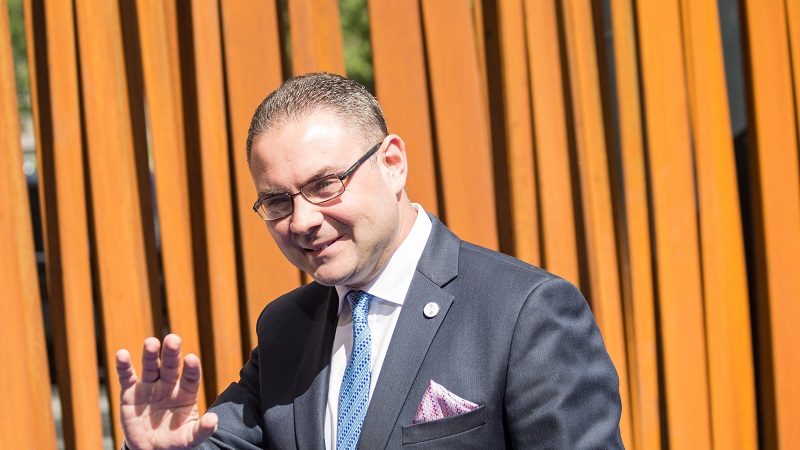In Malta, where everything is upside down and topsy-turvy, this guide is designed as a brief induction into the operational methods of the smallest State in the EU. The ideal dummy is visualised as a foreigner, an outsider, a barrani, a person of European origin who’s been instilled with European values since birth. Our weekly articles are aimed at helping you to (somehow) get ‘Malta’.
Last week’s instalment of Malta for Dummies placed culture under the spotlight, with particular focus on Jason Micallef, chairman of V18, in charge of the heavily criticised and, in some cases, boycotted Valletta European Capital of Culture.
The theme of culture continues, introducing the Ministry for Justice and Culture. At first glance, this might appear an anomaly and this reaction intensifies when considering the Minister himself, Owen Bonnici, in charge of both judicial and cultural affairs on this tiny European island.
As part of his remit in ensuring the democratic functioning of law, order and all manner of cultural activities, Bonnici also takes responsibility for the Cleansing Services Department, crucial in a country proud of the slime on its beaches and the black clouds of smoke bellowing out of its recycling plant and dumpsite, not to mention the dust that covers an island weighed down with construction on which litter settles due to a dearth of bins. You could say waste is a distinguishing feature of Maltese culture.
Bonnici’s name will already be familiar to those following this series so we’ll just call him Owen. He ordered a non-violent display of candles and flowers to be removed from a barricaded monument in front of the Law Courts, an ongoing site of protest since the assassination of Daphne Caruana Galizia almost one year ago. In case you’d forgotten, Owen was the one who oversaw the barricading of the monument without any supporting documents such as a Restoration Method Statement.
Alongside his responsibilities as arbiter of justice, Owen, it transpires, has extended his remit to ensure that any unsightly allegations made against his boss – otherwise known as the Prime Minister – can be soothed away in a sort of pillow talk manner defined as ‘legal counsel’.
Another intimate friend of the Prime Minister, the Attorney General, testified in court last week that he had a copy of the magisterial inquiry been e-mailed to Owen. At the same time, the AG argued against the Opposition leader’s demands to be given a copy of the full Egrant report, currently being redacted by the subject of this inquiry, Joseph Muscat.
The report is likely to also be in the hands of two of Muscat’s closest aides facing allegations of money launderering also named in the report, Keith Schembri and Konrad Mizzi. Although Malta is known for its incestuous code of ethics, even our dumbstruck European dummy must be getting a little bored of repeatedly hearing the same old names.
The role of the Ministry for Justice, Culture and Local Government, as stipulated in their mission statement, is ‘to promote the development of a secure, just and inclusive society where every citizen’s rights and freedoms are safeguarded in an equitable and secure environment.’ Yet the safeguarding of ‘every citizen’s rights and freedoms’ has been placed under threat by the Minister for Justice and Culture himself.












